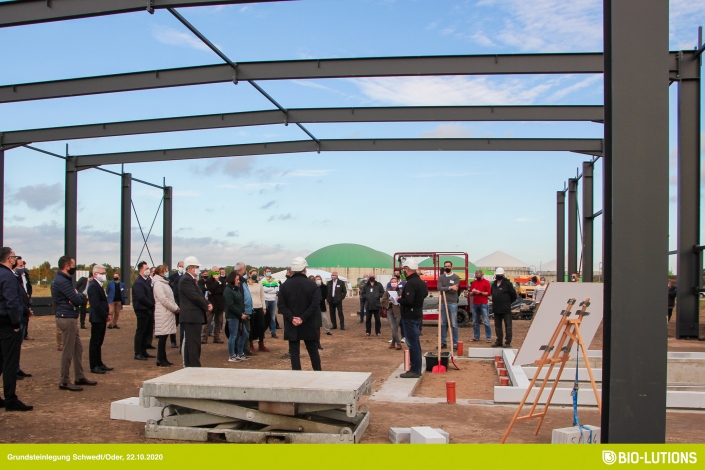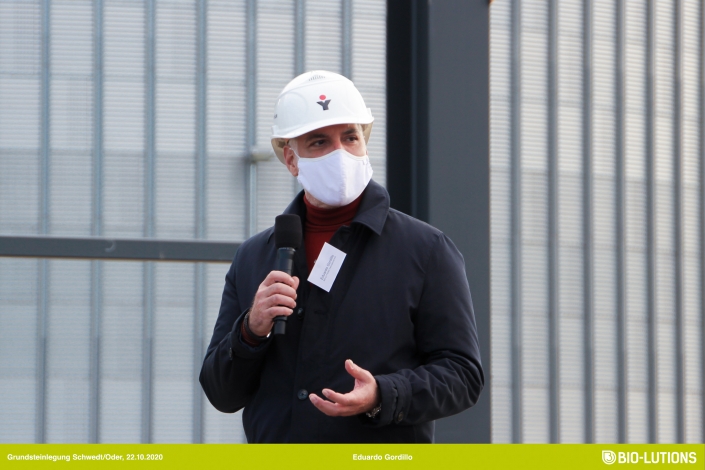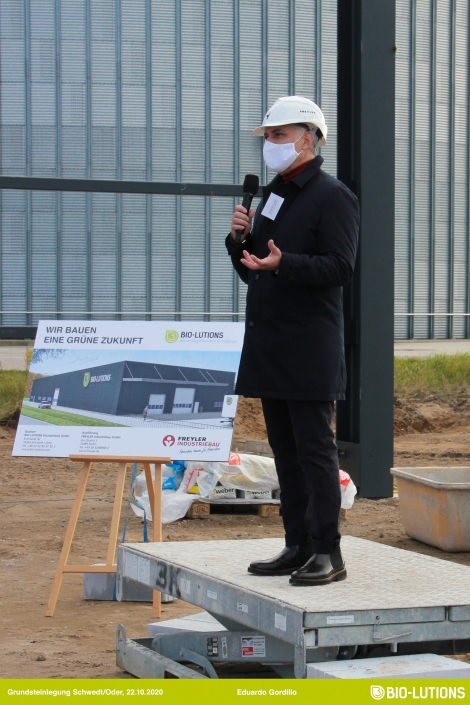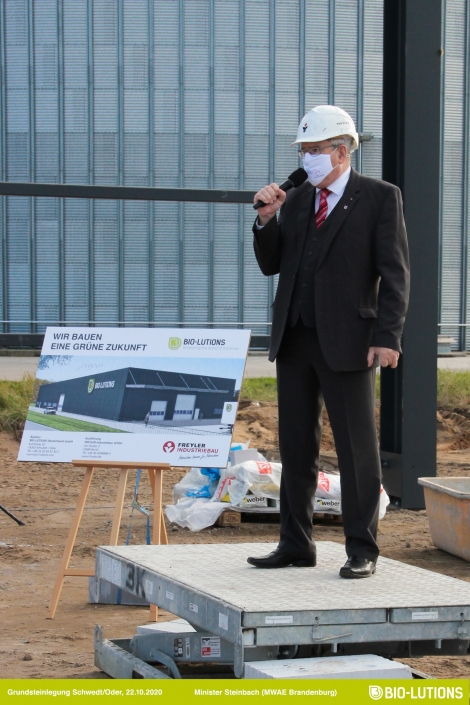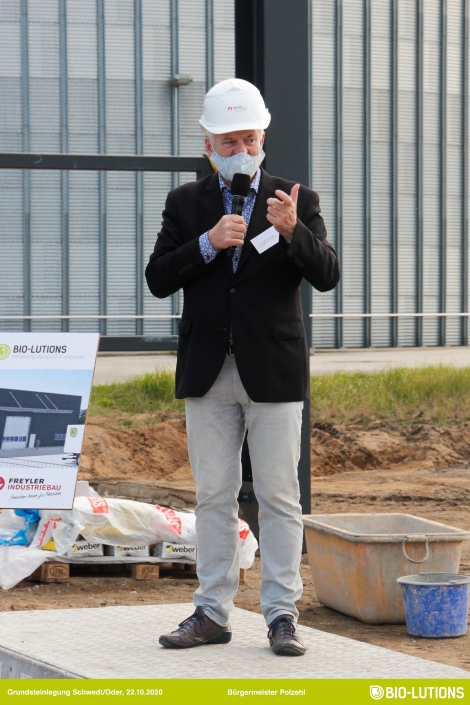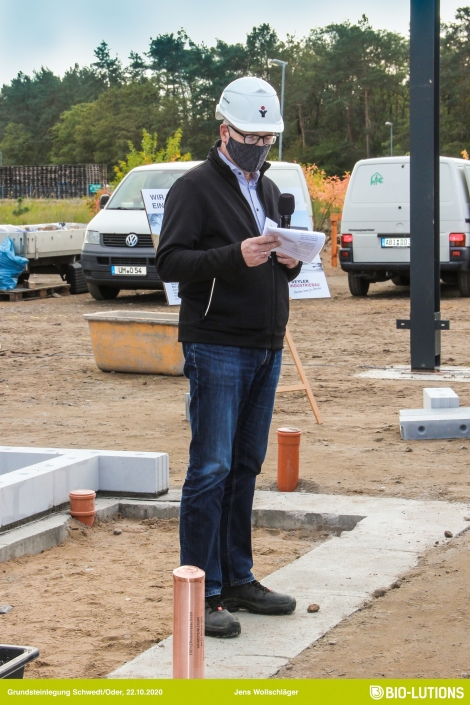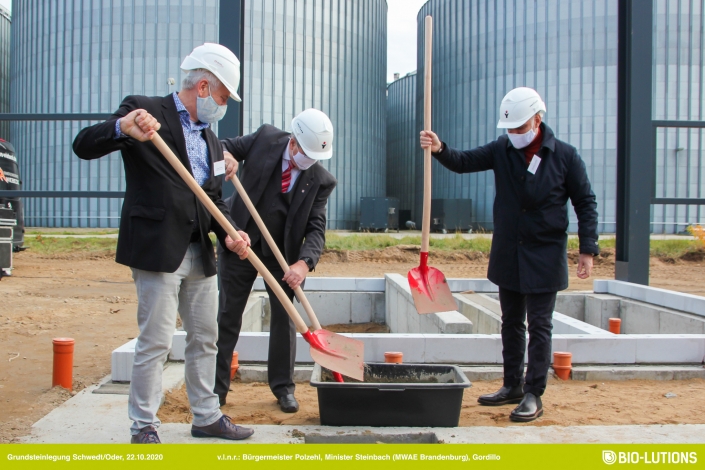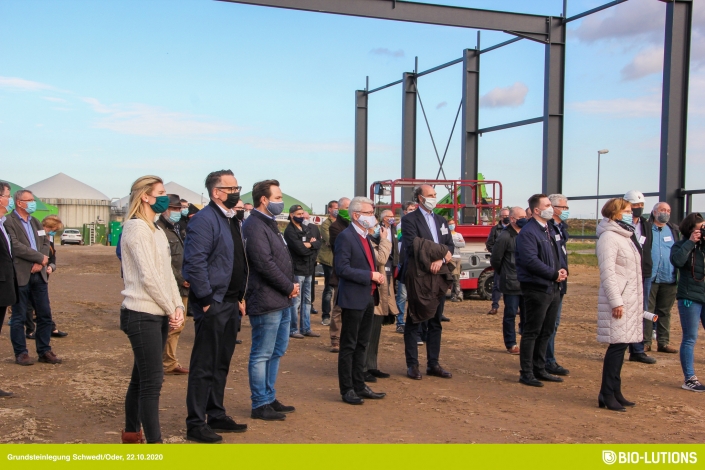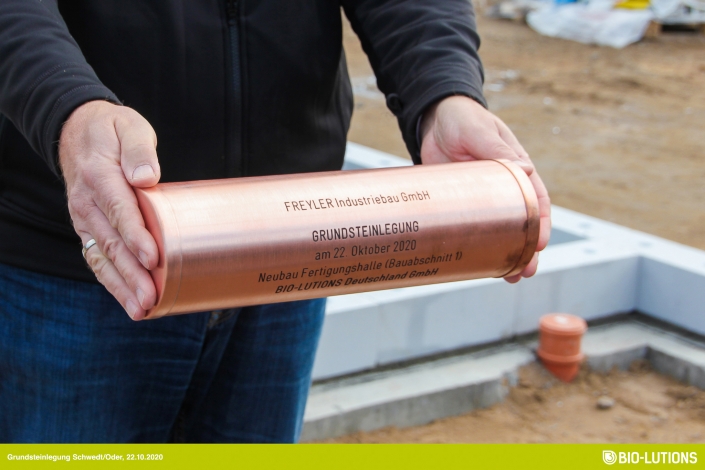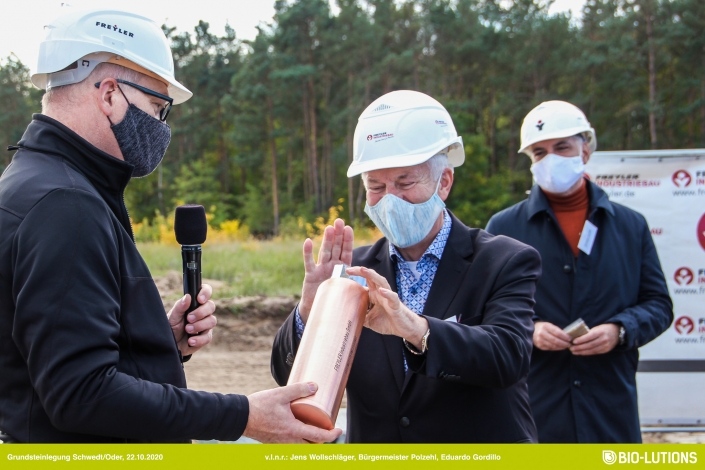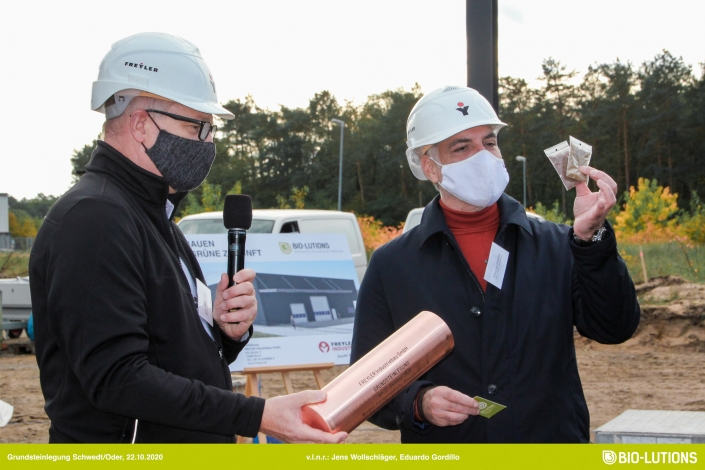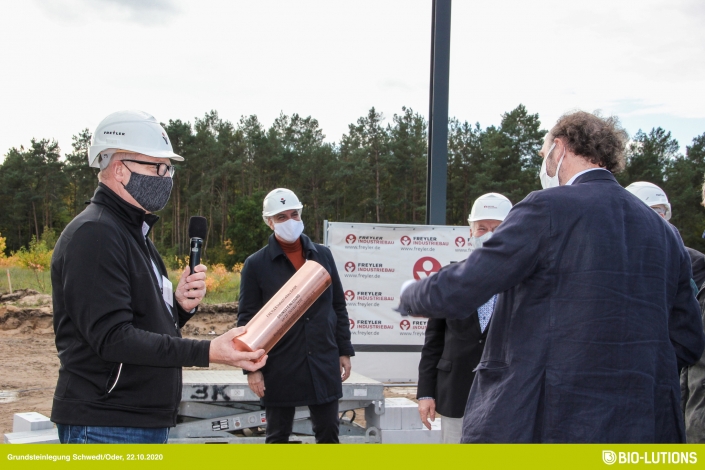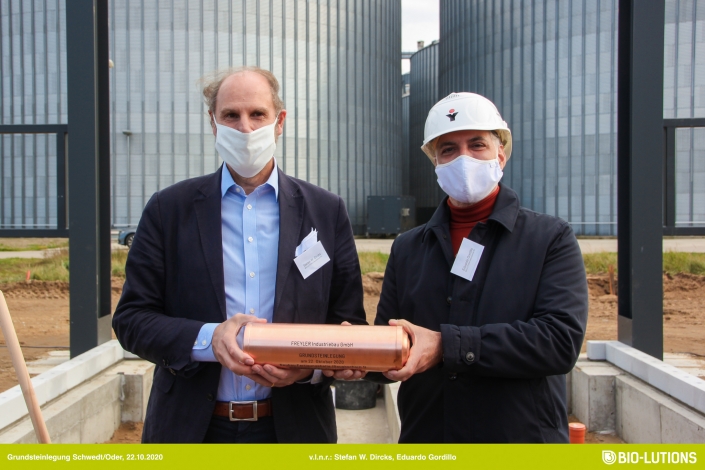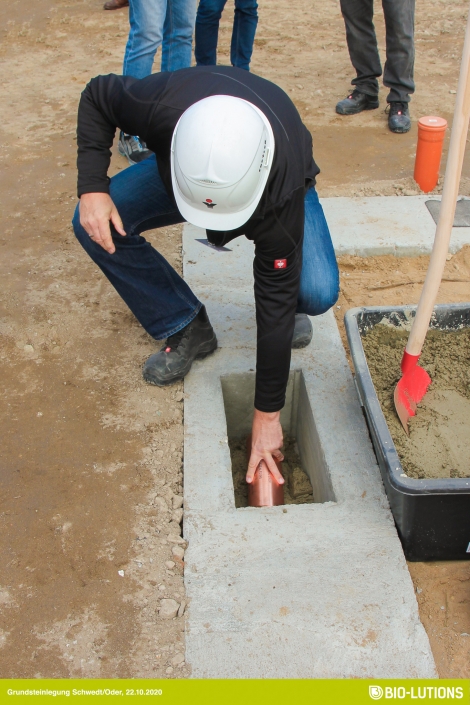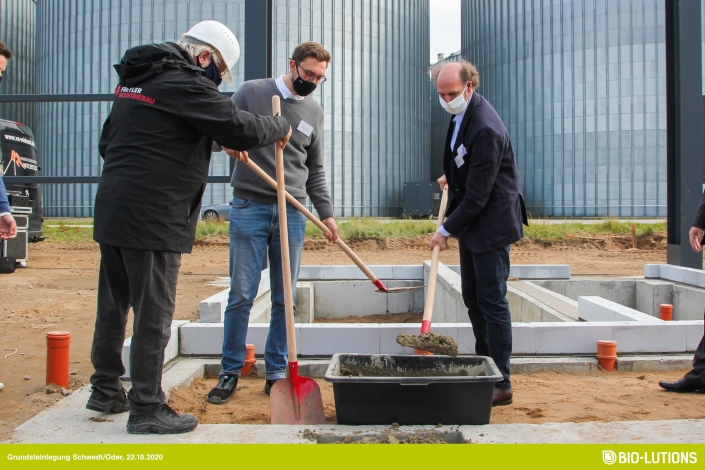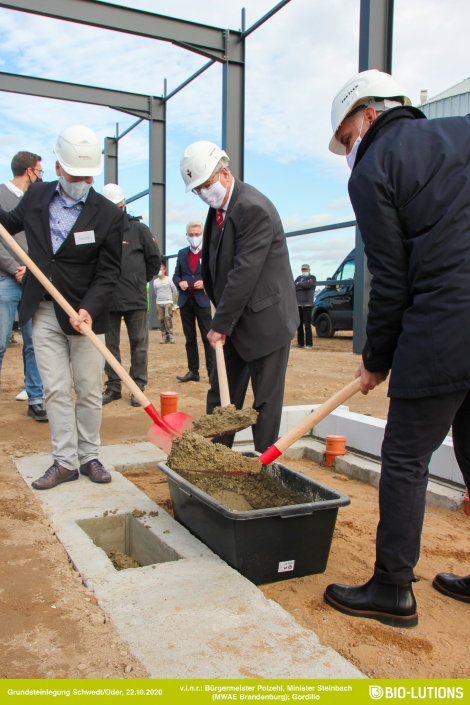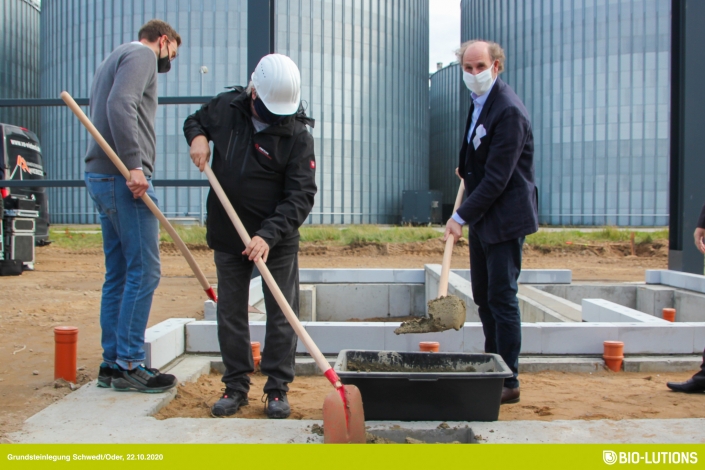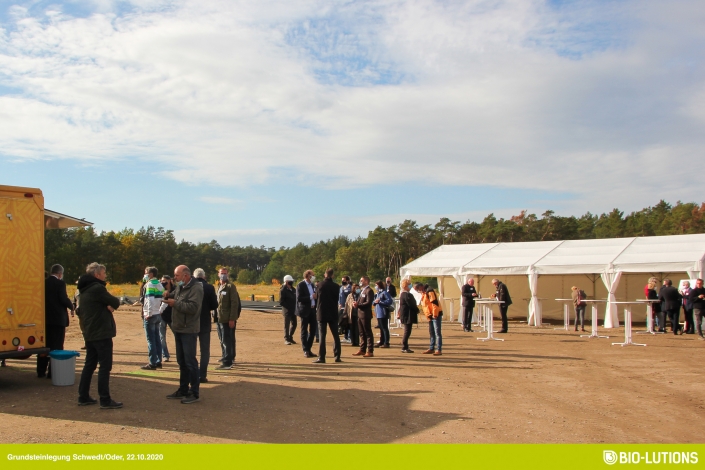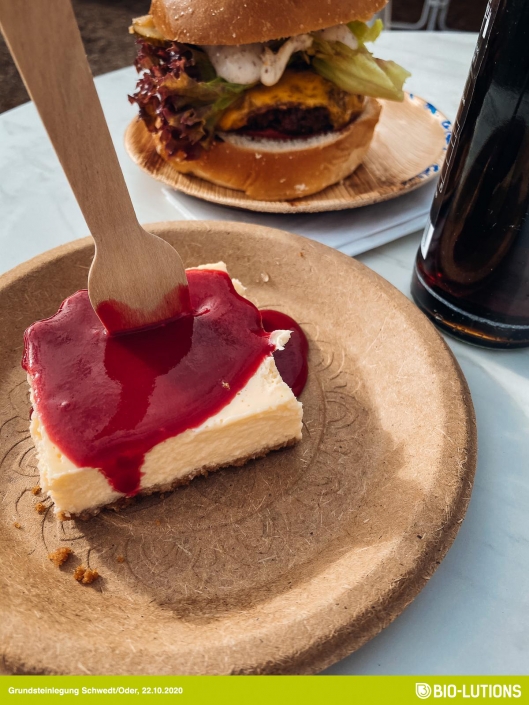PRESS RELEASE
Schwedt/Oder, 22. October 2020:
Abstract:
Sustainability made in Germany – Sustainable materials that can replace plastics across all sectors are a must for a modern, sustainable economy. We at BIO-LUTIONS have taken on precisely this task and produce sustainable disposable products from agricultural waste. With our purely mechanical process we create stable structures and products without additional binding agents. The application of this innovative fibre technology was developed by our research team here in Germany, at our Schwedt technical centre. We opened our first factory 2 years ago in Bangalore, India and now follows the 2000m² production facility in Schwedt. As part of the Innovation Campus Schwedt, BIO-LUTIONS is a part of the new hub for innovative technology in Brandenburg. This location strengthens the development and innovation axis Berlin-Stettin and brings attractive jobs to the region. In the final stage of development, over 200 jobs will have been created and more than 1.5 billion product units will be produced annually. This corresponds to over 30,000 tonnes of avoided plastic waste.
The full Story:
In the industrial park at the port in Schwedt/Oder, our production facility is now being built, in which production for the European market will take place in the future. Construction started in September this year, and the official groundbreaking ceremony was held on 22 October – in compliance with the Corona guidelines. On site were the Minister of Economic Affairs of the State of Brandenburg Prof. Dr.-Ing. Steinbach, the Mayor of the City of Schwedt/Oder Mr. Jürgen Polzehl, the speaker for sustainable area development Deputy Head of the Lower Oder Valley National Park Dr. Michael Tautenhahn, as well as other guests from politics and economy.
Completion of the first 1,830 m2 production hall is scheduled for spring 2021.
Freyler Industriebau Berlin/Brandenburg is in charge of the concept, planning and execution of the project, which comprises several construction phases. Completion of the first 1,830 m2 production hall is scheduled for spring 2021. Further construction phases will follow, including a hall of approximately 15,000 m2 and 700 m2 of office space. “The schedule is tight”, explains Eduardo Gordillo, founder of BIO-LUTIONS, “because the first products from Schwedt should be available by the middle of next year”. That’s when the EU regulation prohibiting the use of disposable cutlery and disposable plastic tableware will come into effect.
The building permit was issued in spring 2020.
As a result, the concept and construction planning had to be completed quickly. “In August 2019 we had an intensive exchange of ideas with BIO-LUTIONS at a Freyler concept day, and in autumn the planning for the first construction phase was completed,” reports Jens Wollschläger, head of the Freyler Industriebau Berlin/Brandenburg division. The building permit was issued in spring 2020. The new production hall will create around 40 new jobs in the first stage. The production hall will have a span of 27 m due to its steel supporting structure and will be divided into three sections with internal sandwich panel walls.
The 7,841 m2 site also has space for a further hall and an office building – these are to be realised in two further construction phases by 2022. Then Eduardo Gordillo also expects the workforce to grow to up to 200 employees. “In future, we want to process a total of about 72,000 tonnes of our bio-material in twelve production lines,” he continues.
Schwedt is already home to our research facilities.
BIO-LUTIONS’ research has been based in Schwedt for several years with a test production facility and has, among other things, helped develop the innovative fibre technology on the basis of which the sustainable disposable products are now produced. Two years ago, the first factory opened in India, with Schwedt now following as the second production site. BIO-LUTIONS innovative solutions aren’t the only way the company protects the environment, the startup also sets standards in terms of environmental protection during production. For example, a special technology is used here that requires hardly any water in the production process.
BIO-LUTIONS is part of the Innovation Campus Schwedt, a new centre for technology innovation in Brandenburg. With more than 1.5 billion product units that BIO-LUTIONS intends to produce annually, more than 30,000 tonnes of plastic waste would be avoided – a truly outstanding goal for our environment and the future of our planet.
Further information:
At www.bio-lutions.com you can find more information about BIO-LUTIONS and our innovative product solutions.
Additional information about FREYLER Industriebau GmbH and its projects can be found at www.freyler.de.
All illustrations: © BIO-LUTIONS
Download Press Release
Klicke hier für die deutsche Version der Pressemitteilung

